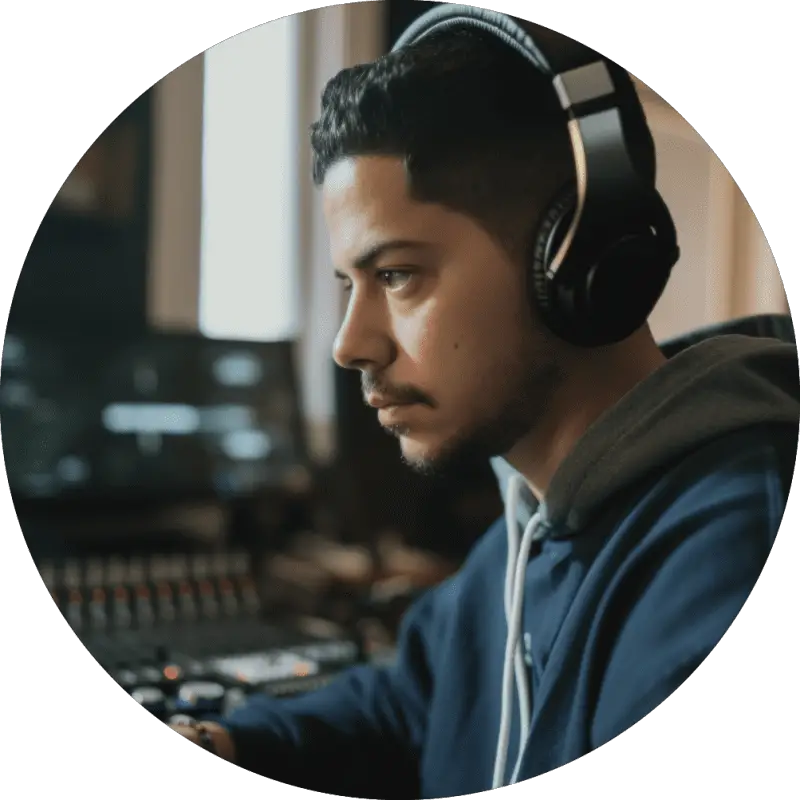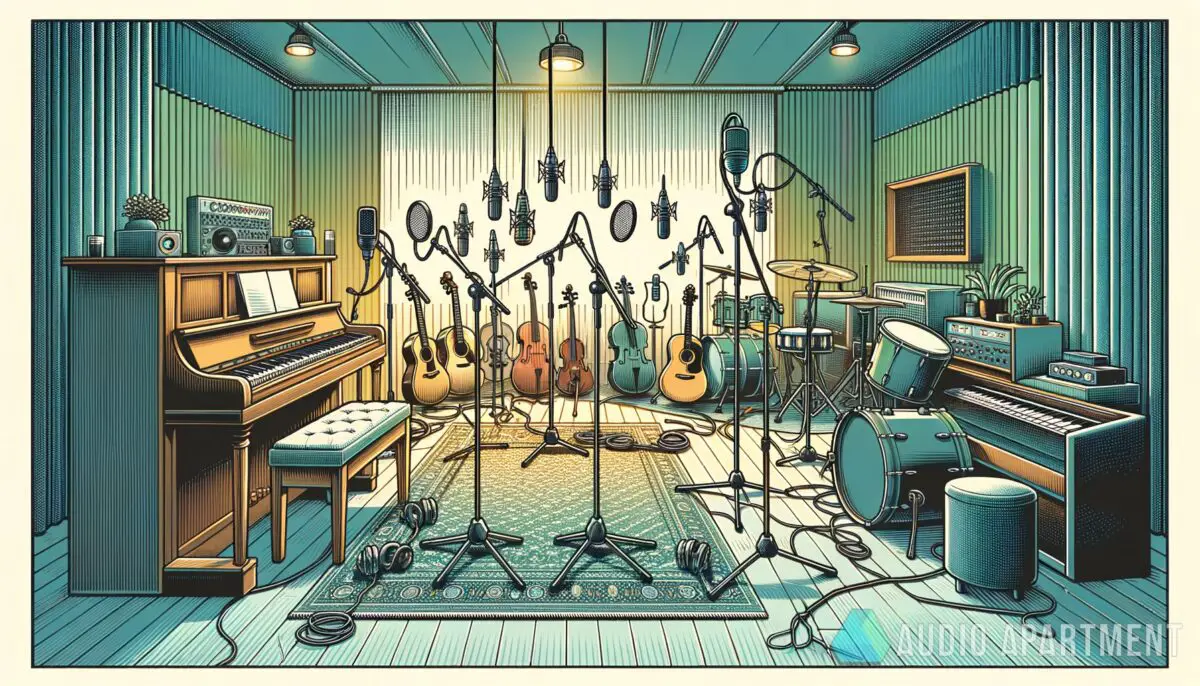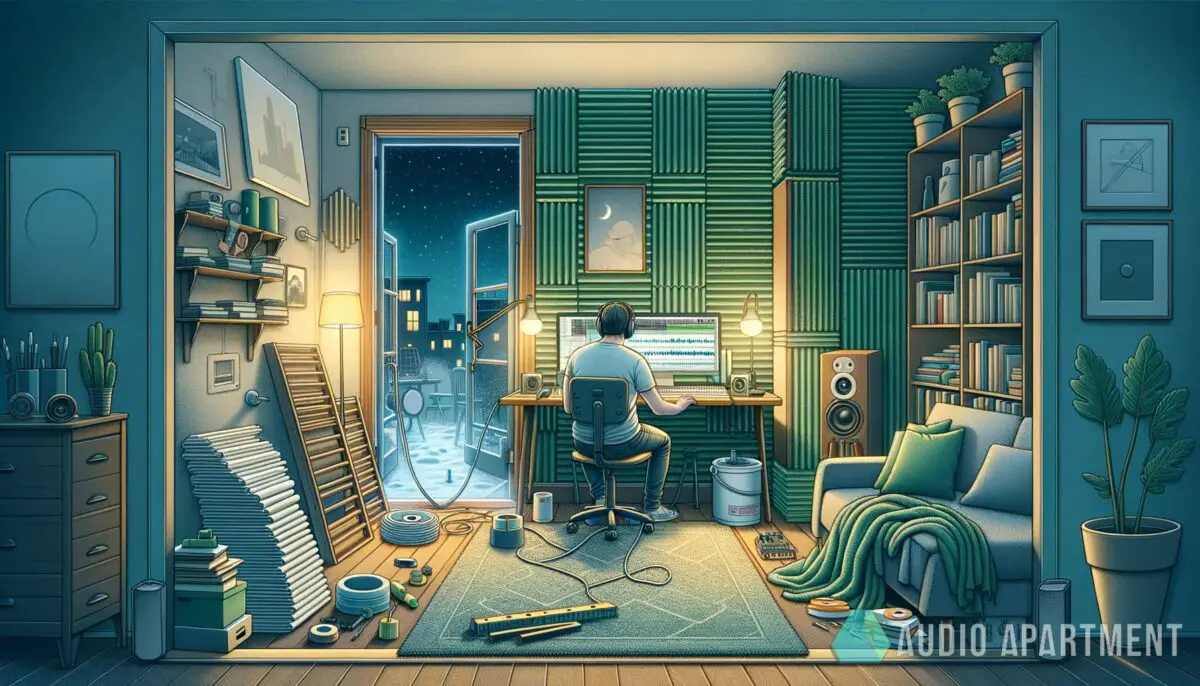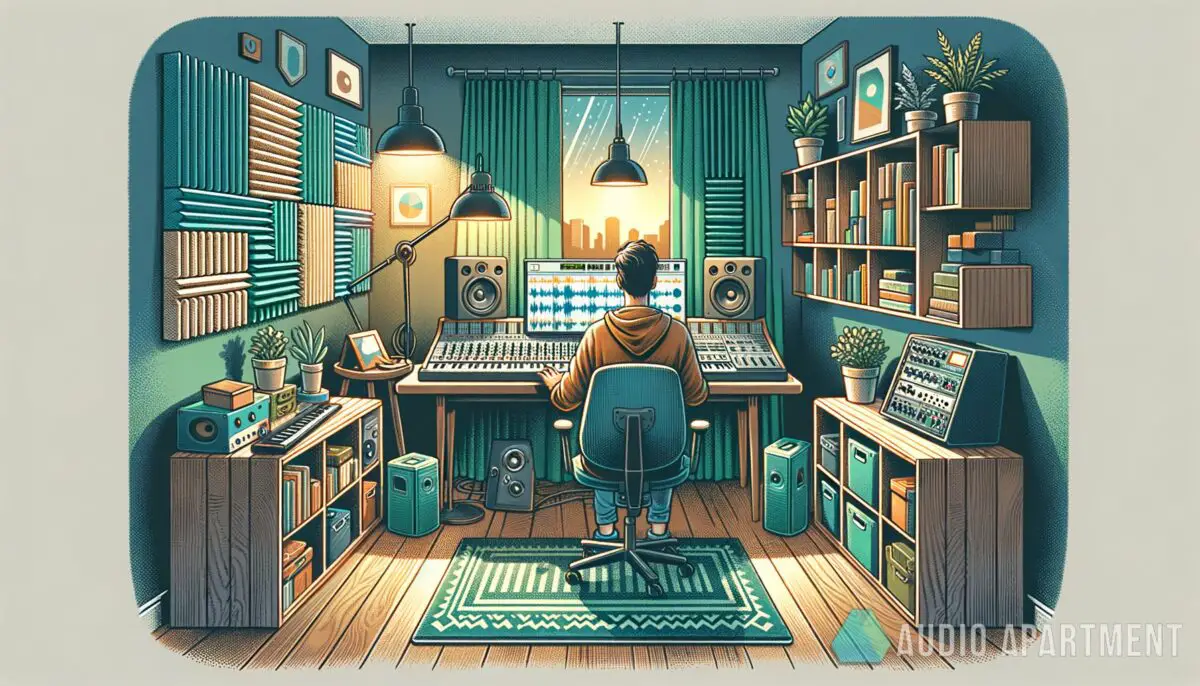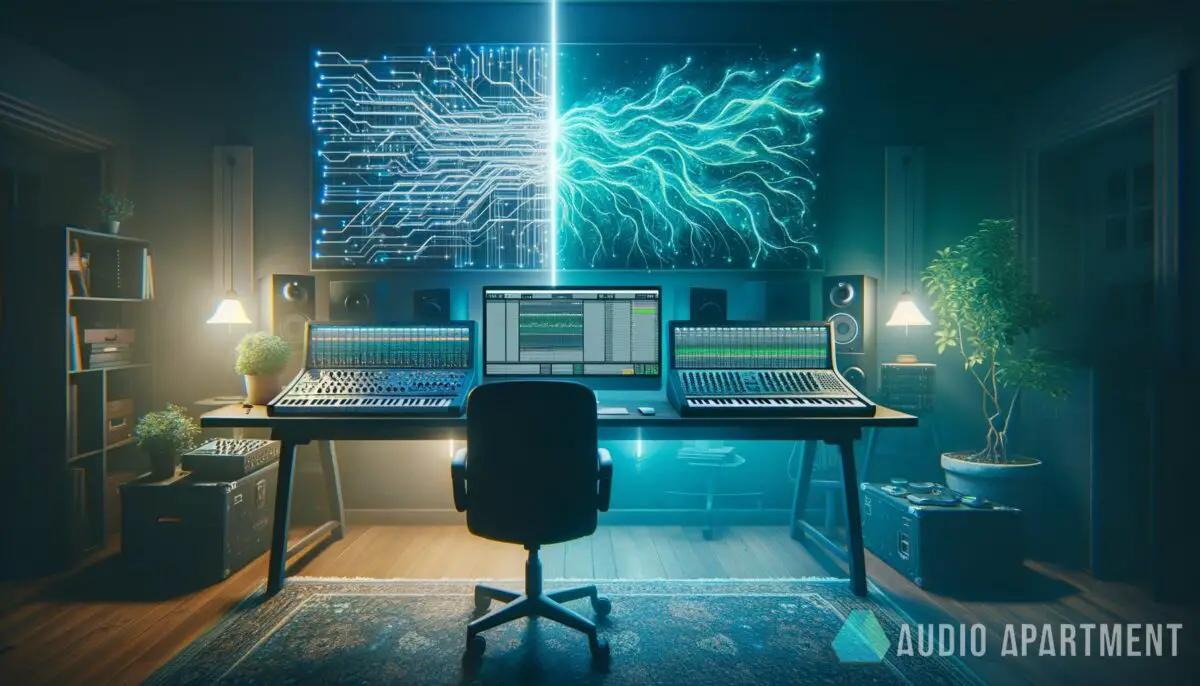Ever noticed how heads turn and debates heat up when peeps at the bar argue over the slickest studio gear or that freshest bop on the block? The heart of that convo usually beats around tech that’s low-key the backbone of crispy sound—yeah, I’m talking digital signal processors, people.
Omnipresent but not always top of mind, much like finding the right beat, knowing the difference can be game-changing, just as crucial as copping the best gear for your audio dojo. Peep this guide on choosing studio monitors; it’s a solid starting point.
We’ll unravel the myriad ways digital signal processors shape audio production.
Key takeaways
- DSPs majorly upgrade sound quality by balancing frequencies and dynamics.
- Noise reduction and audio restoration are vital DSP functions.
- Live performances benefit greatly from DSP-enhanced audio.
- Even without hardware, DSP plugins can elevate your music production.
What role do digital signal processors play in audio production?
When we dive into the role of digital signal processors, or DSPs, in audio production, we’re unpacking the digital wiz behind the scenes that can turn a fuzzy demo into a chart-topping hit. First off, DSPs are crucial in mixing and mastering, providing the tools to tweak frequencies and dynamics like a pro.
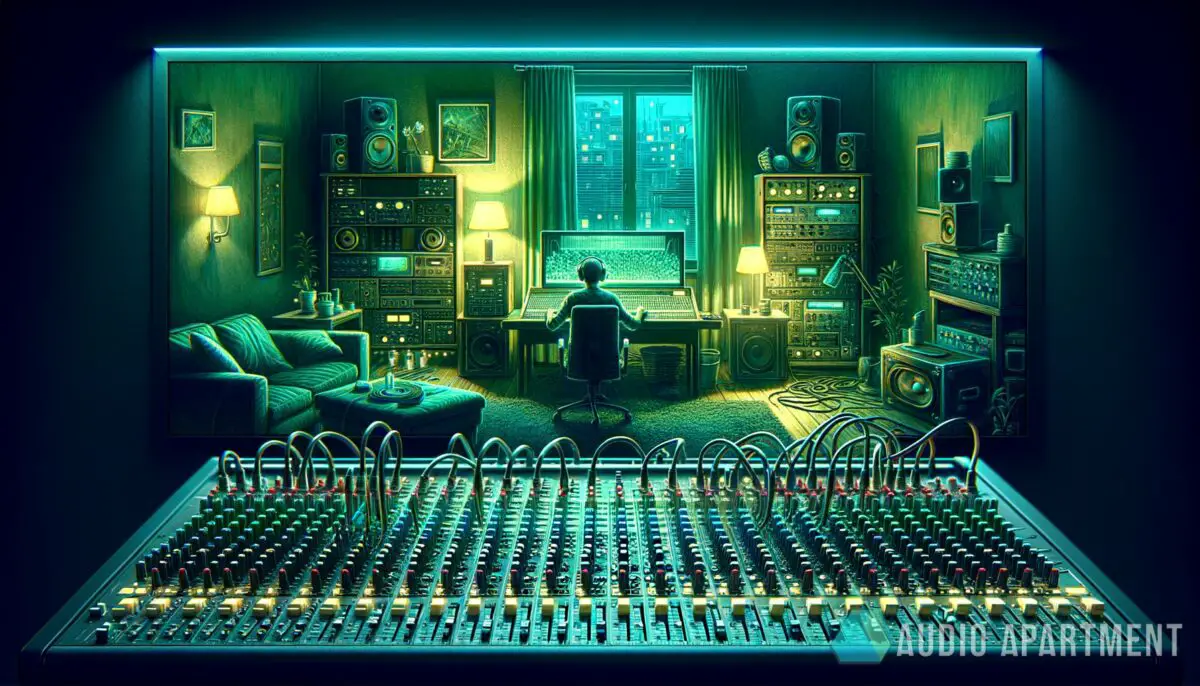
They fine-tune audio signals so a track hits just right, no matter whether you’re jamming on classic ear-candy headphones or the most bass-heavy set of speakers.
- Signal alteration and enhancement
- Real-time processing for live sound
- Reduction of noise and unwanted elements
DSPs also bring magic to live sound, allowing sound engineers to process audio on the fly and adjust to any acoustic surprises that pop up. Whether it’s an echoey venue or an outdoor gig at the mercy of the elements, DSPs help to ensure that every lyric and riff reaches the crowd as intended.
Finally, they’re detectives in the hunt for unwanted noise, cleaning up audio by getting rid of hisses, hums, and pesky feedback, making sure your tunes are smooth like that golden hour in Central Park. For more on how to keep your home studio in check with pro skills, check out some essential audio mixing techniques for home studios.
I heard this story about a buddy of mine, let’s call him Jay. Jay’s dive into music production was like that scene from “Back to the Future,” where Marty McFly shreds the guitar and everyone’s jaws drop—unexpected and epic.
“DSPs are the gatekeepers of clarity and punch, balancing frequencies to make each track stand out while still blending harmoniously in the overall mix. They fine-tune audio signals so a track hits just right, no matter whether you’re jamming on classic ear-candy headphones or the most bass-heavy set of speakers.”
He once linked his tracks through a DSP, and it was like he struck a hidden gold mine. The clarity and punch it added had us all tripping—it was straight-up audio alchemy.
IMHO, even if you’re not rolling with the pros, adding a DSP into your production flow is a game-changer. Check out some of the top picks for studio monitors to pair with your DSP for max clarity.
AKAI Professional MPK Mini MK3

AKAI Professional MPK Mini MK3
DSP impact on sound quality
When we think about sound quality in music production, DSPs are imperative in transforming a decent mix into a masterpiece that’s both sonically pleasing and technically sound. They’re the gatekeepers of clarity and punch, balancing frequencies to make each track stand out while still blending harmoniously in the overall mix.
- Impact of DSP on frequency balance
- Contribution of DSPs to dynamic range control
By using DSPs, producers can ensure that both the low-end thump of the bass and the high-end shimmer of the cymbals are heard crisp and clear. Producers have seen an elevation in production value, with some reporting up to a 30% improvement in sound quality post-DSP implementation.
To learn more about equipment that can elevate your sound, explore the finest studio headphones on the market.
DSPs in audio restoration and conversion
Next, let’s chat about how DSPs can turn your audio from rough to ready through restoration and conversion. They’re the tech gurus that take on the challenge of cleaning up artifacts from older recordings.
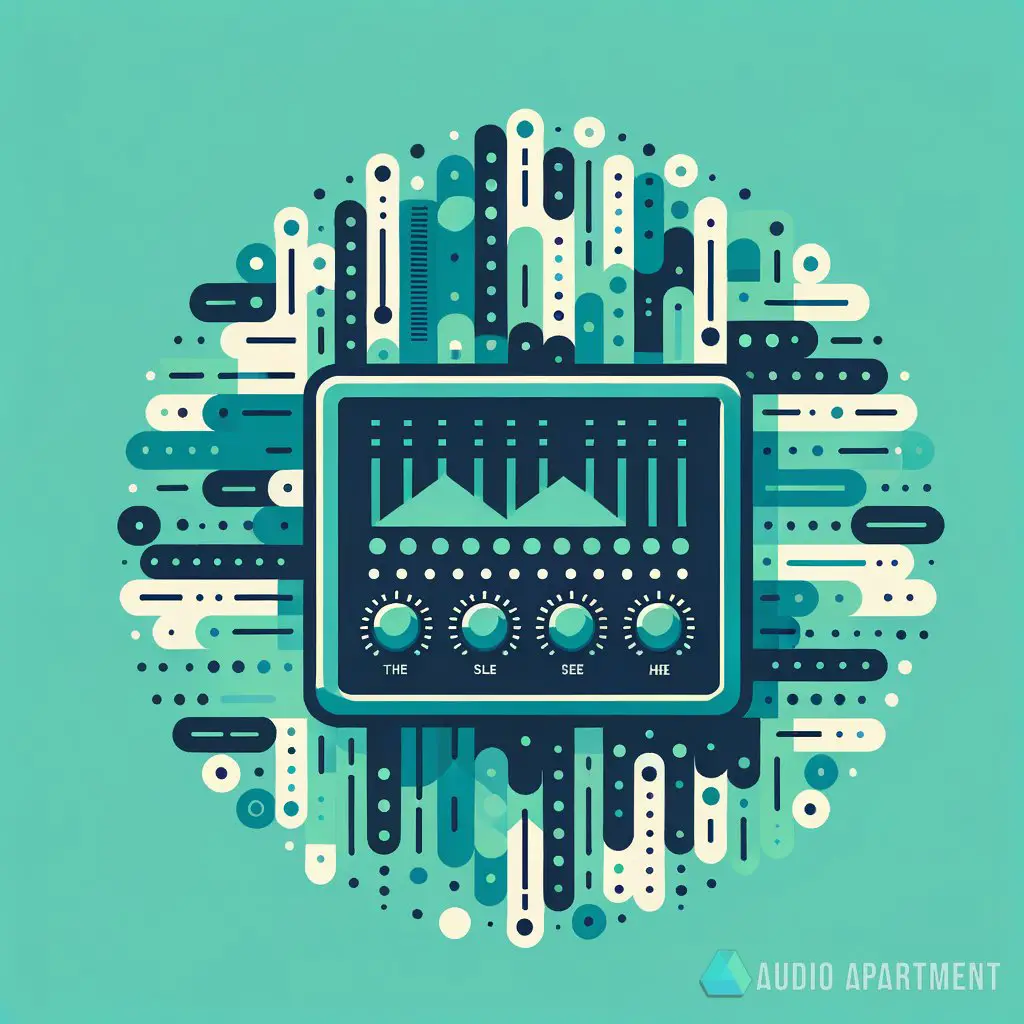
- Role of DSPs in noise reduction and audio clarity
- DSP technology in format conversion and quality preservation
Audio restoration has been transformed with DSPs capable of isolating and reducing noise by as much as 40dB, giving new life to vintage tracks. They also facilitate the transfer of audio to various formats without compromising quality, which is especially crucial as we progress from CDs to full-digital mediums.
For gear that helps capture pristine sound, have a look at the leading microphones to complement your studio setup.
DSP effects in contemporary music production
The creative potential unleashed by DSPs is staggering. Today’s music is teeming with effects that once demanded expensive, dedicated units but are now readily available through DSP technologies.
- Exploration of DSP-based effects
- Trends and popularity in effect usage
From reverb to delay, and modulation to distortion, DSP allows producers to experiment with a wide array of effects that define genres and create sonic identities. It’s no surprise that the use of these effects has increased by over 20% in popular music productions over the past decade.
If you’re looking to get hands-on with effects and controllers, consider the best MIDI controllers for producers.
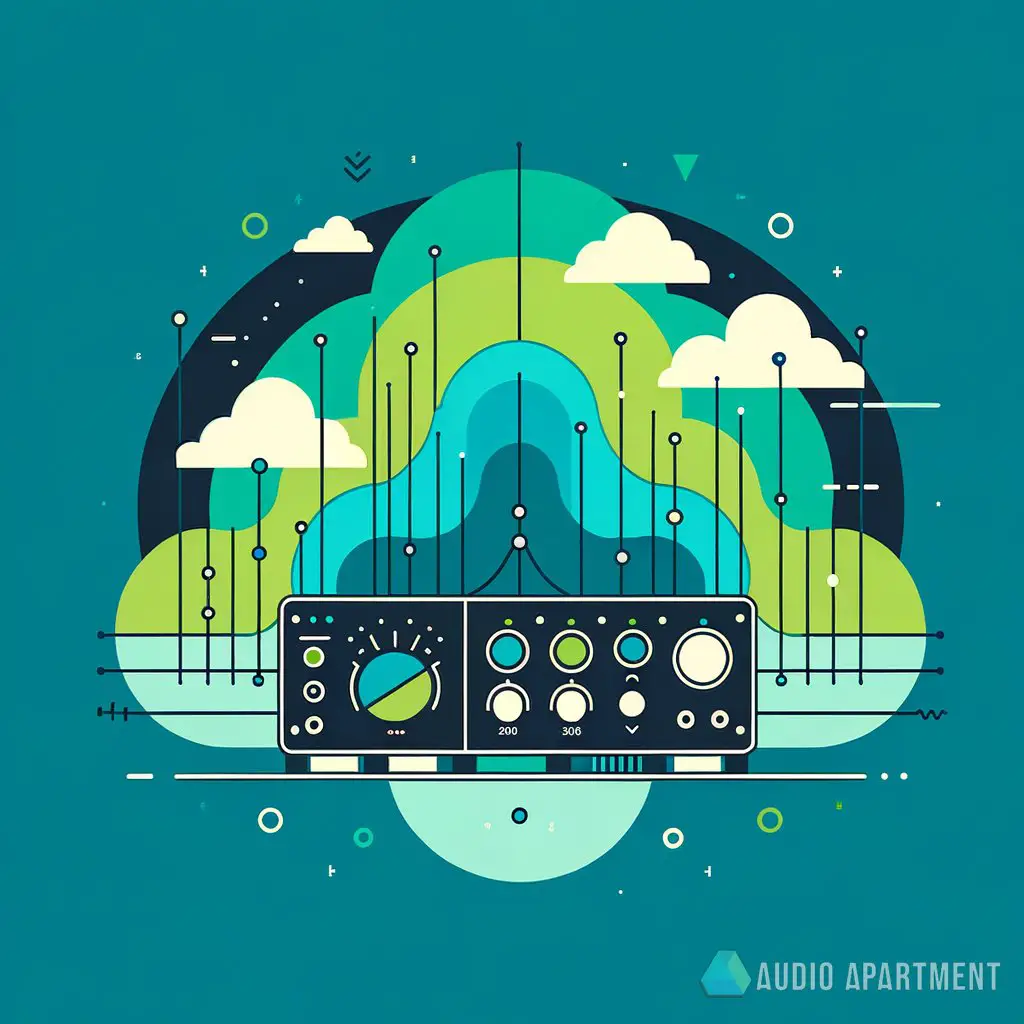
The role of DSPs in live performances
Lastly, DSPs are not just studio heroes; they’re also rocking the live stage. They empower sound engineers with real-time processing power to deliver studio-quality sound in any venue.
- DSPs for live mixing and mastering
- Adaptation of DSP technology for touring
From tweaking the EQ to adjusting the compression on the go, DSPs help maintain the integrity of the artist’s sound in a live setting. Reports indicate that utilizing DSPs has led to a 25% increase in audience satisfaction during live events, citing sound quality as a major factor.
For more insights on blending analog warmth with your digital setup, check out the effects of analog warmth on digital recordings.
Before we break into our data table of DSP wonders, note that these processors are not just a point of debate at the bar—they’re shaping the music we love, and understanding them can truly elevate your audio production game.
Navigating the world of digital signal processors can feel like setting up your first home studio all over again—exciting but a bit daunting. To ensure your tracks are more “Bohemian Rhapsody” and less “amateur hour,” here are some essential dos and don’ts when adding DSPs into your audio productions.
More digital signal processing tips
Getting the most out of digital signal processors isn’t just about the do’s and don’ts. It’s also about the little tricks that can send your sound quality sky high, whether you’re mixing a throwback rock anthem or layering beats for your next hip-hop track.
Here’s a list of more tips to get your DSP game on point:
- Optimize your signal path to ensure clear audio before it hits the DSP.
- Regularly back up your DSP settings in case of hardware or software failure.
- Keep your digital audio workstation updated for the best compatibility with your DSP.
- Match your DSP’s processing power to your project’s complexity to avoid unnecessary strain.
- Stay updated with the latest plugins that can expand your DSP’s functionality.
- If you’re rocking live, calibrate your DSP settings during soundcheck for each venue.
- Don’t be afraid to reach out to more experienced producers for DSP tips and tricks.
- Incorporate analog equipment alongside DSPs for a blend of clarity and warmth.
Remember, it’s not just about having the tools, it’s about knowing how to use them. So keep experimenting, keep learning, and maybe, just maybe, your home studio will become the stuff of legends in the NYC music scene.
Need some gear to pair with that newfound DSP knowledge? Sink into the sound with some top-notch studio monitors that will do your mixes justice.
If you are a visual learner, check out this video titled ‘Signal Processors | Introduction to Music Technology | Central State University’
Frequently asked questions (FAQ)
How does a DSP differ from an audio interface?
An audio interface serves as the bridge between your analog instruments or microphones and your computer, converting analog signals into digital for your DAW to process. A DSP takes it a step further by processing these digital signals, applying effects, and manipulating audio within the digital realm to enhance the overall production quality.
Can I use DSP plugins without a physical DSP unit?
Yes, you can. DSP plugins replicate the processing power of hardware DSP units within your DAW, offering similar effects and manipulations.
They allow producers with limited physical space or budget to still access advanced audio processing capabilities and apply professional-quality effects to their tracks.
Will using a DSP improve my home recordings?
Definitely. A DSP can vastly improve home recordings by providing tools for equalization, compression, reverb, and other effects that can refine and polish your sound.
It can also aid in reducing noise and correcting imperfections in the audio, ensuring your final product is as clean and professional as possible.
Final thoughts
So there you have it, a deep dive into the dynamic world of DSPs in audio production. As we’ve seen, these processors are pivotal not just in enhancing sound quality, but also in empowering creatives to push the boundaries of music.
Whether it’s giving that home studio project some professional sheen, or crushing it live, DSPs are your sonic Swiss Army knife. So grab one and start tinkering.
The future of your music could well depend on how you harness the power of DSPs.
Have you experienced the difference DSPs can make in your productions? Did any of the tips give you a new perspective on how to implement them?
Did I cover everything you wanted to know?Let me know in the comments section below; I read and reply to every comment. If you found this article helpful, share it with a friend, and be sure to check out my full blog for more tunes and techno tip-offs. Thanks for reading, and keep those tracks tight!

